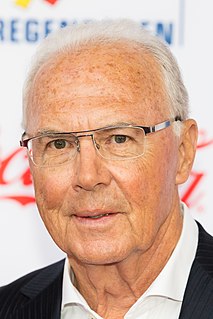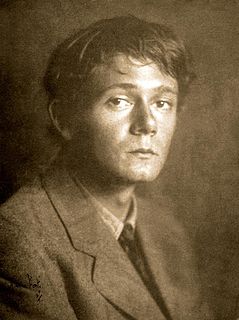A Quote by David Hume
We need only reflect on what has been prov'd at large, that we are never sensible of any connexion betwixt causes and effects, and that 'tis only by our experience of their constant conjunction, we can arrive at any knowledge of this relation.
Related Quotes
Only by spiritual practice can we break through our karma and the effects of the causes we have made. Only then can we escape from them. It matters not whether you have acquired any merit. Merit is merit. Karma is karma. Nonetheless, if one practices the Quan Yin Method, one can be liberated regardless of having any merit or not. It is so logical, so scientific.
We are not to make the Torah into God Himself, nor the Bible into a "paper pope." The Bible is only the result of the Word of God. We can experience the return of the Word of God in the here and now, the perpetual return of the actual, living, indisputable Word of God that makes possible the act of witnessing, but we should never think of the Bible as any sort of talisman or oracle constantly at our disposal that we need only open and read to be in relation to the Word of God and God Himself.
All our knowledge hast its origins in our perceptions … In nature there is no effect without a cause … Experience never errs; it is only your judgments that err by promising themselves effects such as are not caused by your experiments … Science is the observation of things possible, whether present or past; prescience is the knowledge of things which may come to pass.
Judgment can be acquired only by acute observation, by actual experience in the school of life, by ceaseless alertness to learn from others, by study of the activities of men who have made notable marks, by striving to analyze the everyday play of causes and effects, by constant study of human nature.
What a lost person needs is a map of the territory, with his own position marked on it so he can see where he is in relation to everything else. Literature is not only a mirror; it is also a map, a geography of the mind. Our literature is one such map, if we can learn to read it as our literature, as the product of who and where we have been. We need such a map desperately, we need to know about here, because here is where we live. For the members of a country or a culture, shared knowledge of their place, their here, is not a luxury but a necessity. Without that knowledge we will not survive.
We have no other notion of cause and effect, but that of certain objects, which have always conjoin'd together, and which in all past instances have been found inseparable. We cannot penetrate into the reason of the conjunction. We only observe the thing itself, and always find that from the constant conjunction the objects acquire an union in the imagination.
Man is made for science; he reasons from effects to causes, and from causes to effects; but he does not always reason without error. In reasoning, therefore, from appearances which are particular, care must be taken how we generalize; we should be cautious not to attribute to nature, laws which may perhaps be only of our own invention.
Let us see that our knowledge of Christ be not a powerless, barren, unpractical knowledge: O that, in its passage from our understanding to our lips, it might powerfully melt, sweeten, and ravish our hearts! Remember, brethren, a holy calling never saved any man, without a holy heart; if our tongues only be sanctified, our whole man must be damned. We must be judged by the same gospel, and stand at the same bar, and be sentenced to the same terms, and dealt with as severely as any other men.
For many ages it has been allowed by sensible men, Nihil est in intellectu quod non fuit prius in sensu: That is, There is nothing in the understanding which was not first perceived by some of the senses. All the knowledge which we naturally have is originally derived from our senses. And therefore those who want any sense cannot have the least knowledge or idea of the objects of that sense; as they that never had sight have not the least knowledge or conception of light or colours.
[M]any people would accept that we do not really have knowledge of the world; we have knowledge only of our representations of the world. Yet we seem condemned by our consitution to treat these representations as if they were the world, for our everyday experience feels as if it were of a given and immediate world.
A relation is formed betwixt every man and the fruits of his own labour, the very thing we call property, which he himself is sensible of, and of which every other is equally sensible. Yours and mine are terms in all languages, familiar among savages, and understood even by children. This is a fact, which every human creature can testify.








































